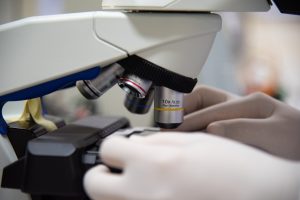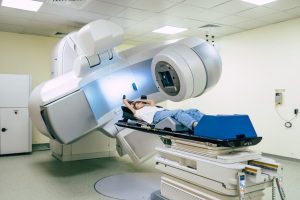
2026 Cancer Statistics
Cancer Death and Diagnosis Statistics for 2026: 2 RCCA Oncologists Provide Insights into the Numbers The latest statistics from the American Cancer Society (ACS) detail
HIPAA Alert: Potential Data Breach Learn More
Questions on Oncology, Hematology and/or Infusion Clinical Services due to COVID-19 Crisis – CALL 833-698-1623
Important Information for Our Patients Regarding the Coronavirus.
RCCA Providing Area Cancer Patients with Access to Care During Coronavirus Outbreak
RCCA Offering Patients Virtual Visits During Coronavirus Pandemic
If your day is often interrupted by bathroom breaks, you are not alone. Many people nationwide struggle with similar concerns for a variety of reasons. But when is “frequent” too frequent? Frequent urination can be linked to several prostate conditions that place pressure on the urinary system. While some of these are benign, they often share symptoms with prostate cancer. Cancer is most successfully treated when it’s diagnosed early, so it’s important to inform a physician of any concerns.
Many individuals diagnosed with prostate cancer turn to Regional Cancer Care Associates (RCCA) for treatment. RCCA is a group of more than 100 medical oncologists and hematologists who treat patients who have solid tumors, blood-based cancers and benign blood disorders at 25 locations throughout New Jersey, Connecticut, Massachusetts, and the Washington, D.C., area. They strive to educate patients while providing innovative care.
Following, we discuss what frequent urination is a sign of, other signifiers of prostate cancer, and what patients should do if they suspect they have cancer.

First, what is frequent urination? How often is too often? Most people urinate seven to eight times each day and up to two times each night. This average varies widely between individuals and can change due to a variety of factors. For example, if a person drinks large quantities of water or if they take a medication with frequent urination as a side effect, then this number may increase.
Urination habits, especially at night, also change with age. People in their 40s and 50s may pee only once per night, while those in their 60s or 70s might need to go twice. Somebody in their 80s may need three bathroom visits every night.
Because these are averages, the most important thing is to understand your own body. If you suddenly need more bathroom breaks in the day, or if your sleep is newly disrupted by a need to urinate, consider whether any lifestyle factors might be related. Have your drinking habits changed? Are you on a new medication? If not, your frequent urination may have an underlying cause.
Prostate cancer does not always cause symptoms, especially in early stages. When complications do arise, however, many of them are related to the urinary system. Frequent urination is just one of these symptoms. Other urinary issues caused by prostate cancer include:
These symptoms may also be related to other conditions, such as an enlarged prostate or a urinary tract infection (UTI). It is important to note that the great majority of individuals who experience one or more of the symptoms listed above will not have prostate cancer. Nonetheless, it is important to consult a physician about these symptoms, particularly if they are pronounced, arose suddenly, or have persisted for an extended period. Even if the cause is not cancer, prompt treatment will help you find relief.
Urinary issues are not the only signs of prostate cancer. A tumor can also interfere with sexual function or cause pain, especially if it’s large. The following are symptoms of prostate cancer that are unrelated to the urinary system:
Once again, people who experience the above symptoms should speak with a doctor. Complications with the reproductive system can be serious, even if they are not cancerous. The sooner you seek medical assistance, the sooner you can identify the cause and start receiving treatment.
Any man can be affected by prostate cancer. Certain factors, however, can put men at greater risk of developing the condition. The strongest risk factors for prostate cancer include:
The following are also potential risk factors for prostate cancer, though their relationship with cancer remains unclear:
If you may be at higher-than-average risk of prostate cancer, you should speak with your physician about screening options. You should also alert your physician to urinary issues or other signs that may be associated with prostate cancer.
If you notice that you are urinating more frequently, your first step should be to speak with a physician. You can also take notes in advance of your appointment. These will help your physician determine the root cause. Take note of the following:
Using this information, your physician will work with you to determine a diagnosis.
To accurately diagnose the cause of frequent urination, your physician will request a series of tests. Which tests are used depend on the other symptoms you are experiencing. The following are frequently used to diagnose prostate cancer:
Thorough testing is key to ensure an accurate diagnosis. Once cancer is confirmed, patients and physicians can discuss options for successful treatment.
What is frequent urination a sign of? You can learn more about this symptom and other signs of prostate cancer at Regional Cancer Care Associates. RCCA specialists provide care to more than 30,000 new patients and 265,000 established patients each year. RCCA physicians offer patients innovative therapies, including immunotherapies and targeted therapy, cutting-edge diagnostics as well as access to approximately 300 clinical trials in community-based centers close to home.
What is frequent urination?
Frequent urination is when a person needs to pee more often than usual. In most people, this is over seven to eight a day or three times a night.
Does frequent urination mean I have prostate cancer?
Frequent urination is a symptom of many prostate and urinary conditions, most of which are benign. It can be caused by cancer, however, so individuals should seek a diagnosis if they have concerns about frequent urination.
What are the symptoms of prostate cancer?
Symptoms of prostate cancer may include:
For more information or to schedule an appointment,
call 844-346-7222. You can also schedule an appointment by calling the RCCA location nearest you.

Cancer Death and Diagnosis Statistics for 2026: 2 RCCA Oncologists Provide Insights into the Numbers The latest statistics from the American Cancer Society (ACS) detail

If you’ve been diagnosed with breast cancer, you may have heard radiation therapy discussed as part of your treatment plan. This approach is commonly used

Cancer and its treatment often impact a person’s quality of life. In the case of prostate cancer, a man’s sex life may be affected. Sexual

Regional Cancer Care Associates is one of fewer than 200 medical practices in the country selected to participate in the Oncology Care Model (OCM); a recent Medicare initiative aimed at improving care coordination and access to and quality of care for Medicare beneficiaries undergoing chemotherapy treatment.